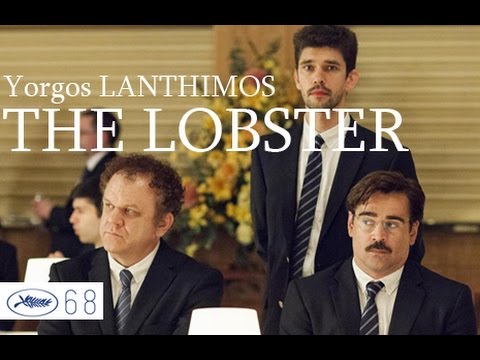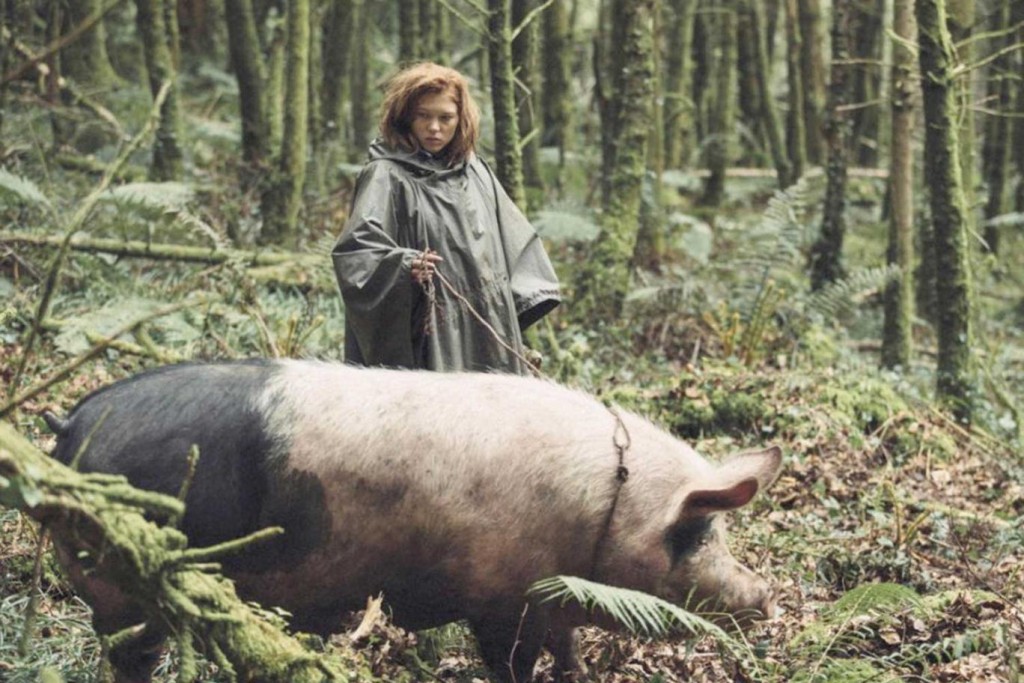
“The Lobster” by Source (WP:NFCC#4). Licensed under Fair use via Wikipedia – https://en.wikipedia.org/wiki/File:The_Lobster.jpg#/media/File:The_Lobster.jpg
The Lobster is not a film about animals. It has been described as ‘an unconventional love story’ and ‘an achingly dystopian rom-com’ but I think it is far more than that. It asks how we must conform, how we must knuckle under, to survive. Then, The Lobster examines our attitudes to those who do not ascribe to correct behaviour, the other.
The Lobster, directed by Yorgos Lanthimos and co-written by Efthimis Filippou, is about relationships, though not necessarily about marriage. It is about politics; rules, conventions and the law. It is about expectations, survival and truth.
<iframe width=”560″ height=”315″ src=”https://www.youtube.com/embed/z069ldsumxA?rel=0″ frameborder=”0″ allowfullscreen></iframe>
A man, David, finds himself single after his wife leaves him for another. He travels to a comfortable hotel of repartnering (a luxurious hotel in Ireland) taking his brother (who is now a dog). There are many regulations and his brother is a constant reminder of failure.
The Lobster is rather sweet and whimsical at first but quickly slides into a nightmare for the protagonist. He knows he has limited time to find a suitable partner. When he fails, as he probably will, he will be turned into the animal of his choice, a lobster. Most people want to be turned into a dog, which is why there are so many dogs and why most other animals are endangered. Whilst within this system he becomes part of the police and must track down and recover outsiders to buy extra time to seek that one special match.

https://www.google.com.au/url?sa=i&rct=j&q=&esrc=s&source=images&cd=&cad=rja&uact=8&ved=0ahUKEwjEguPxxqXJAhXh5aYKHTFpB7EQjB0IBg&url=http%3A%2F%2Fconcreteplayground.com%2Fmelbourne%2Fpinboard%2Fconcrete-playgrounds-handy-guide-to-whats-in-melbourne-cinemas-this-month%2F&psig=AFQjCNGNIeffUs9GMbptqudvmQcO1PBCPg&ust=1448333925994751
After some horrible events David switches allegiance and finds himself amongst the hunted in the Woods. Here life is equally overburdened with rules and his attempt to find loopholes by creating another language is heavily punished. Finally, he must curtail his own freedom to survive. He damages himself in order to conform.
This is a black and white world. The characters are as careful as poker players as they attempt to avoid confrontation. Their neutral speech is that of robots as they struggle to protect their dissembling from discovery.
The final scenes are set in a cafe next to a highway full of busy criss-crossing roadbuilding trucks. Further questions arise from these pictures. What price progress?
The Lobster’s layers of fantasy and magical realism embrace cold naturalism and swing it into another world. It’s not a comfortable world. Nor is it dystopian because it is impossible in the way of Brazil or The Bothersome Man or A Zed and Two Noughts. It is like Pan’s Labyrinth in that there are certainly strict and forceful methods of dealing with outsiders. As I understand dystopia that grim future may be possible, such as in The Handmaid’s Tale, 1984 or The Road. The films I listed above, such as The Bothersome Man, are more like The Lobster as allegory or parable and were made specifically for film, the visual media, and not adapted from novels.
The Lobster asks many ethical questions of the audience. How are we to live our lives hamstrung by nonsensical conventions? Who makes up the rules? Why should we go along with the majority and worse still, assist in policing rules we don’t understand and don’t need to follow?
In order to partner with someone, to return to the city and a somewhat ‘normal life’ in a steady relationship, there must be a match in identifying characteristics. Is this how we now live our lives on the internet? We are aware of information shared by those we agree with. Is it possible that in the days of newspapers and television that edited truth provided a wider view than that which most of us choose to see from our ‘tribe’? If all we ever know is what we already know, then how can we even begin to imagine what life is like for others?
Taking an even wider vision from the film, our society is divided.Why should some people be better than others? The show of force from stronger and stronger police, armies and surveillance must be examined. Which laws exist to protect us? Who is us? Whose side are you on?
<iframe width=”560″ height=”315″ src=”https://www.youtube.com/embed/gCLFbddF27Q?rel=0″ frameborder=”0″ allowfullscreen></iframe>




